#69: My irrevocable determination: the abdication of Edward VIII
Whirlwind affairs, gossip, and Nazis
Howdy, friends!
I wrote a guest post for Tommy Dean: agent, author, and editor over at Fractured Lit and Uncharted. His newsletter is a fantastic resource for writing flash fiction - something y’all know I’m passionate about.
My writing habit is a cornerstone of my life; if I don’t write creatively for even a day, my life feels as if its missing something fundamental and I cast about for whatever it is that’s lacking until I finally sit down to write. This drive, in part, is thanks to the systems I’ve put in place to prioritize writing day after day.
So if you want some advice on actually sitting down at your computer every ding dang day, here’s what I have to say about it:
With that all said, let’s get to some hot historical gossip! Today we’re going to…
💌 Learn about Edward VIII and Wallis Simpson's love affair,
💌 talk about abdication,
💌 uncover Nazi secrets,
💌 and muse over whether golf-playing rich boys obsessed with
flattery are fit to reign.(also the world is stressful right now - here’s a soothing slice of everyday beauty)
🥂 A glitzy affair
It was 1931, and while the poor gathered in Hoovervilles around the United States and 25% of the British workforce was unemployed, the upper crust partied. Hard.
Edward VIII, heir to the crown, met Wallis Simpson at his lover Lady Furness’ country estate. Wallis, an American socialite, was fresh on a second marriage to a wealthy British-American businessman.
But like many authentic love stories, their first meeting didn’t rain down magic from the sky. Wallis had a cold, and the conversation was stilted, circling on mundane things like the weather.
But Edward being a playboy with a soft spot for married women - like Lady Furness herself - it’s no surprise that eventually, Wallis caught his eye. The second time they met, he knew it was love:
“I looked upon her as the most independent woman I had ever met, and presently, the hope formed that one day, I might be able to share my life with her."
And so their affair began, caution (and current relationships) be damned. Love doesn’t stop for silly things like logistics. And in 1934, when Furness was away on holiday, Wallis and Edward made their move and took the affair public. After that, the affair with Furness ended and Edward and Wallis became joined at the hip.
But a king in love is tricky. As King, Edward would effectively be the head of the Church of England - and a twice-divorced woman was too scandalous a queen and public figure for the era. And even before Wallis entered the picture, the Palace, Parliament, and Church of England all didn’t think Edward was strong “king” material, more obsessed with optics than governance, the kind of man who enjoyed golf trips and pomp, rather than affairs of state.
But despite those misgivings, in a country where propriety reigns, they issued a moratorium on the press, keeping articles about Wallis Simpson at bay - even as the United States and continental Europe had a field day about the affair.
Through the stormy opposition, one thing was sure: Edward and Wallis’ love was just beginning - and come hell or high water, the two would spend their lives together.
👑 A new King arrives
Despite the hush-hush turmoil, things chugged along for the lovers in relative peace - until Edward’s father, George V, died in 1936, thrusting Edward VIII into the limelight and the role of King.
Almost immediately, Wallis finally filed for divorce from her second husband and Edward made public his plans to marry her. And the Parliament, Church of England, and royal family doubled down on what they’d been saying all along: no marriage between an American divorcée and their king would happen.
From a young age, Edward VIII was popular with his subjects, going out to meet new people, partying, playing golf, flirting with married women. Biographers and historians like Anna Pasternak cite Edward as emotionally immature, easily susceptible to flattery - and despite his ambitions for kinghood, less than interested in what that job actually entailed.
So, a man in love and well used to getting his own way, Edward staged his first protest, watching his own coronation from the window at St James Palace, Wallis by his side, rather than attending in person.
Once coronated, Edward learned that even a king’s power has limits. Despite his best efforts, Edward couldn’t find someone in the Church of England willing to marry them. Wallis, being an independent woman used to breakups, even publicly offered to leave Edward if it made things better:
That was enough. With the world against them - and the ever-increasing threat of losing his partner Edward VIII abdicated, only 325 days into his regency and wildly in love with Wallis.
I, Edward the Eighth, of Great Britain, Ireland, and the British Dominions Beyond the Seas, King, Emperor of India, do hereby declare My irrevocable determination to renounce the Throne for Myself and My descendants, and My desire that effect should be given to this instrument of abdication immediately.
Edward and Wallis moved to France days later, never to move back to England again.
He was the only king in a thousand-year monarchy to abdicate - and he did it for love. So romantic, right?
Not quite.
🚩 Then came the Nazis
See, in today’s episode of “Why are Rich People so Awful?,” while Edward and Wallis yukked it up in their glitzy Continental life, far away from the problems of the crown and the country they had both once called home, the lovebirds got close to a certain mass murderer and dictator.
In 1937, apparently impressed with the direction Germany was taking, the two took a little trip to visit Hitler.
Even though the war didn’t begin til 1939, at this point Hitler had already become a bona fide monster. Here’s a short list of what he’d done under Nazi Germany by the time Wallis and Edward paid him a visit:
Banned marriages between Jewish and non-Jewish Germans
Ordered the burning of tens of thousands of books - including the 1933 raid on the Institute for Sex Research that lost over 12,000 books of LGBTQ research
Orchestrated the Röhm Purge
But none of these things mattered to good old Eddie and Wallis, who were more than happy to get chummy with Hitler.
The trio is all smiles:
There’s no ambiguity here: Edward and Wallis had a great time. After their trip to Germany, Edward wrote his friend Hitler a letter:
To the Fuhrer and Reich Chancellor,
As we leave Germany, the Duchess of Windsor and I sincerely thank you for the great hospitality you have extended to us and for the many opportunities to see what is being done for the welfare of working Germans.
We take with us a deep impression of our journey through Germany and will never forget the attention your representatives surrounded us with or the warm welcome we received everywhere.
We especially thank you for the wonderful hours we spent with you at [your mountain home in] Obersalzberg.
Edward
Edward’s Nazi appreciation didn’t end there. In 1939, at the start of the war, he recorded a broadcast for the BBC in which he urged Britain to do all in their power to come to terms with Nazi Germany, saying they needed to find a “peaceful settlement.”
The BBC never aired the broadcast, shelving it in secret, knowing that a revelation like this from their former king would gut England’s morale.
But once the war began, Edward played at being a model former King, asking his brother - King George VI - for a job to help the war effort. In a bid of trust, George gave Edward a role as liaison officer to the French First Army, which required Edward to go inspect French defenses.
At first, it seemed Edward took the role seriously, identifying some weak points in Paris and suggesting to England specific spots to shore up defense. The UK dismissed him, already not trusting Edward - only for those exact spots were later exploited. This could be a coincidence - but some historians think Edward might’ve played a role in it.
Perhaps the worst evidence of all comes after Hitler personally hired Nazis to whisk Edward and Wallis, who were living it up in France, to safety in Portugal. By that point, secret police were tracking their every move. And July 11, 1940, the secret police intercepted a telegram between German intelligence officers containing the most damning line of them all:
“The Duke definitely believes that continued severe bombing would make England ready for peace.”
And several months later, in September, that’s exactly what the Nazis do, bombing London and Buckingham Palace for the first time.
In an effort to curb his Nazi sympathies without making Edward’s betrayal public and shaking the British people, Winston Churchill ordered Edward to a new post far from the action: Governor of the Bahamas. The former king had no choice but to accept.
He still made one final play on his way to the transatlantic boat, sending a coded telegram to his Nazi sympathizer friend, expressing his willingness to return if the opportunity arose. And upon landing in the Bahamas he sent one more to that same Nazi-supporting friend requesting a telegram “as soon as action was advisable.”
🎩 A plush life
For nine years after the war, the British government suppressed every document condemning Edward. And while I wish I could say Edward VIII eventually got his just desserts, when the information went public, the Crown denied it all, issuing a written statement in Edward’s defense.
And so he and Wallis lived out their days in lavish excess, supported by rich friends and a very low-cost rental home offered to them by the City of Paris. The Duke spent the final 35 years of his life in voluntary exile.
Look, is there a moral to all this? Don’t let a love story blind you to people’s shitty morals? Bad people feel love too? If I sit back and think about it, maybe the moral is this: that wealthy people who assume the world is theirs for the taking and spend all day playing golf as the world burns have no place in positions of power.
All my abdication-worthy love and stamps forever,
Nikita, your Snail Mail Sweetheart
Primary sources
For this article, for any information not hyperlinked in the post I largely relied on two documentaries:
Edward VIII: Britain's Traitor King
and “1936: The Abdication,” below:
I also highly recommend The Holocaust Encyclopedia from the United States Holocaust Memorial Museum for WWII research.

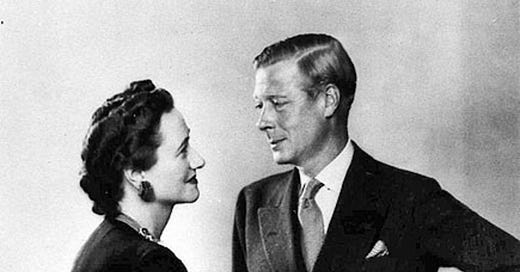




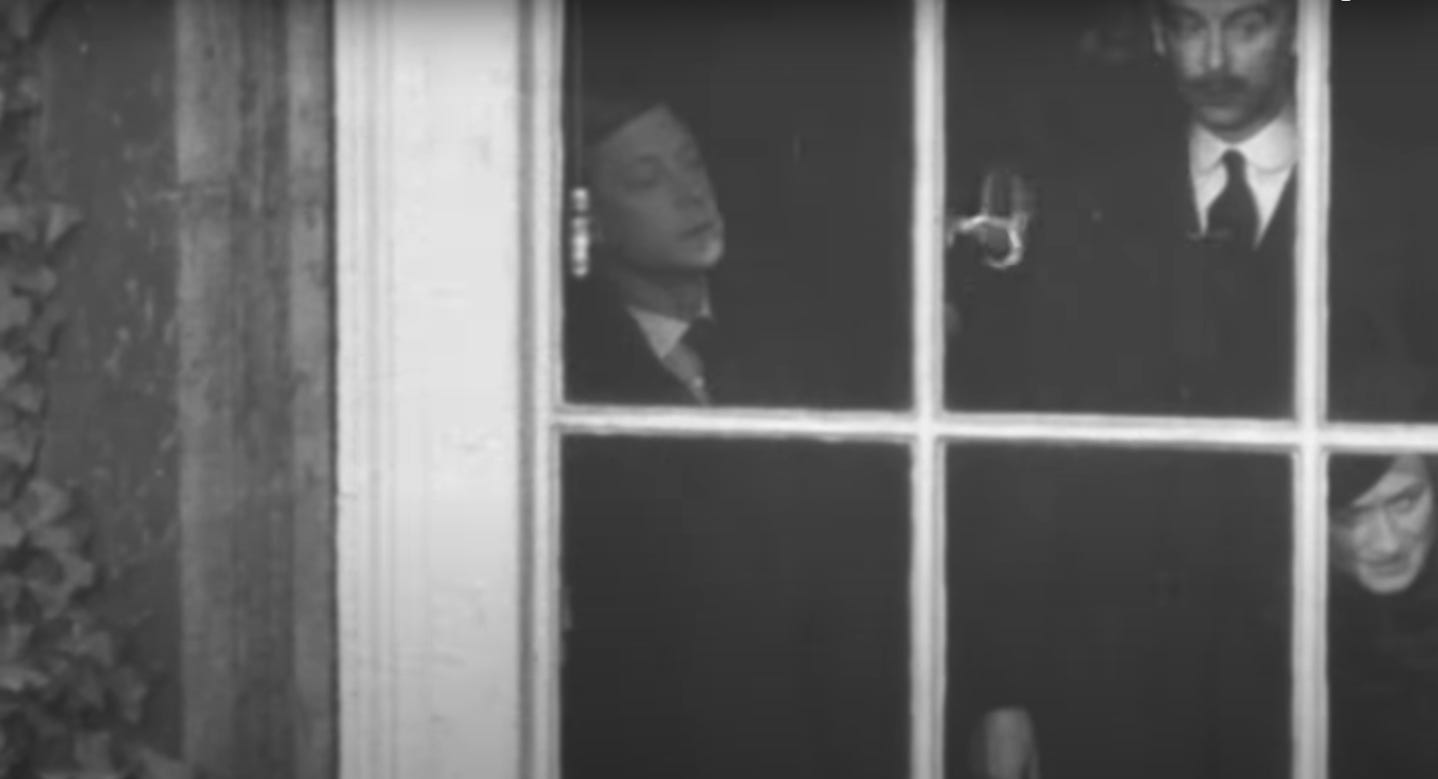

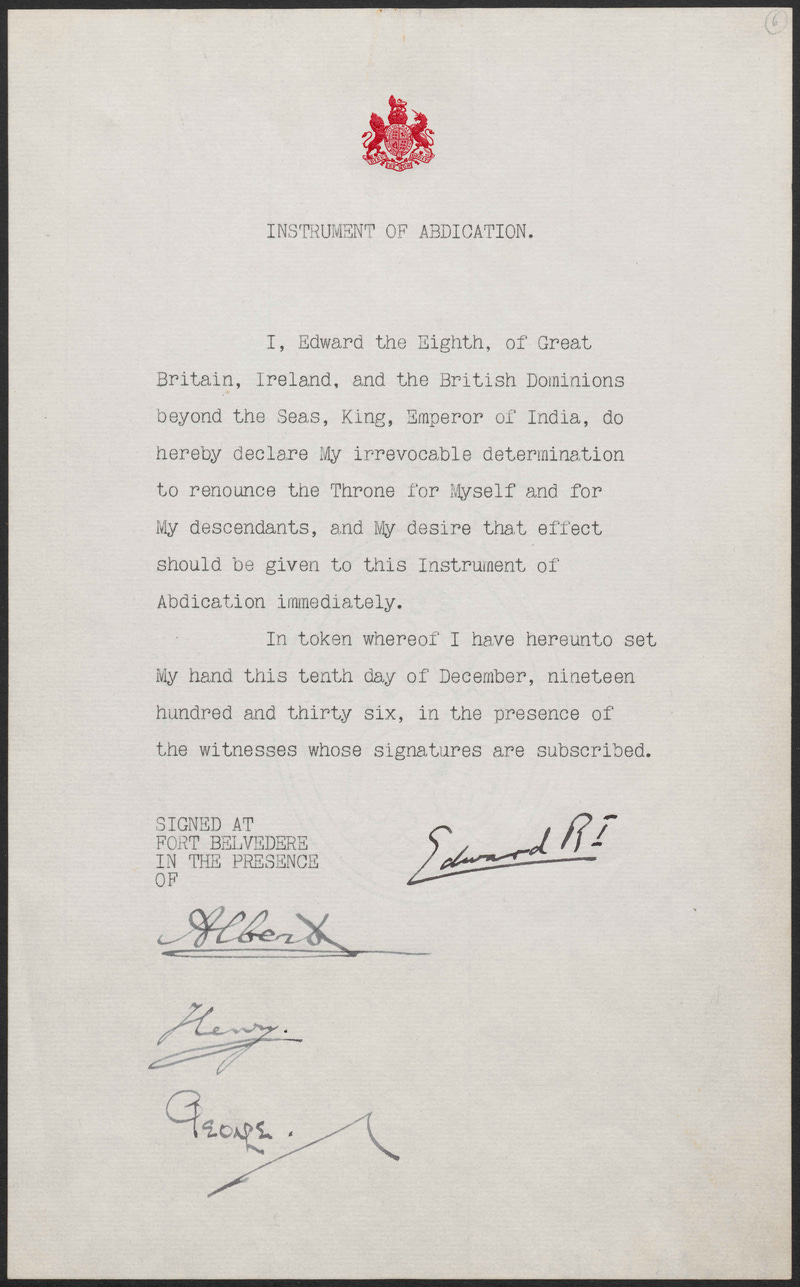
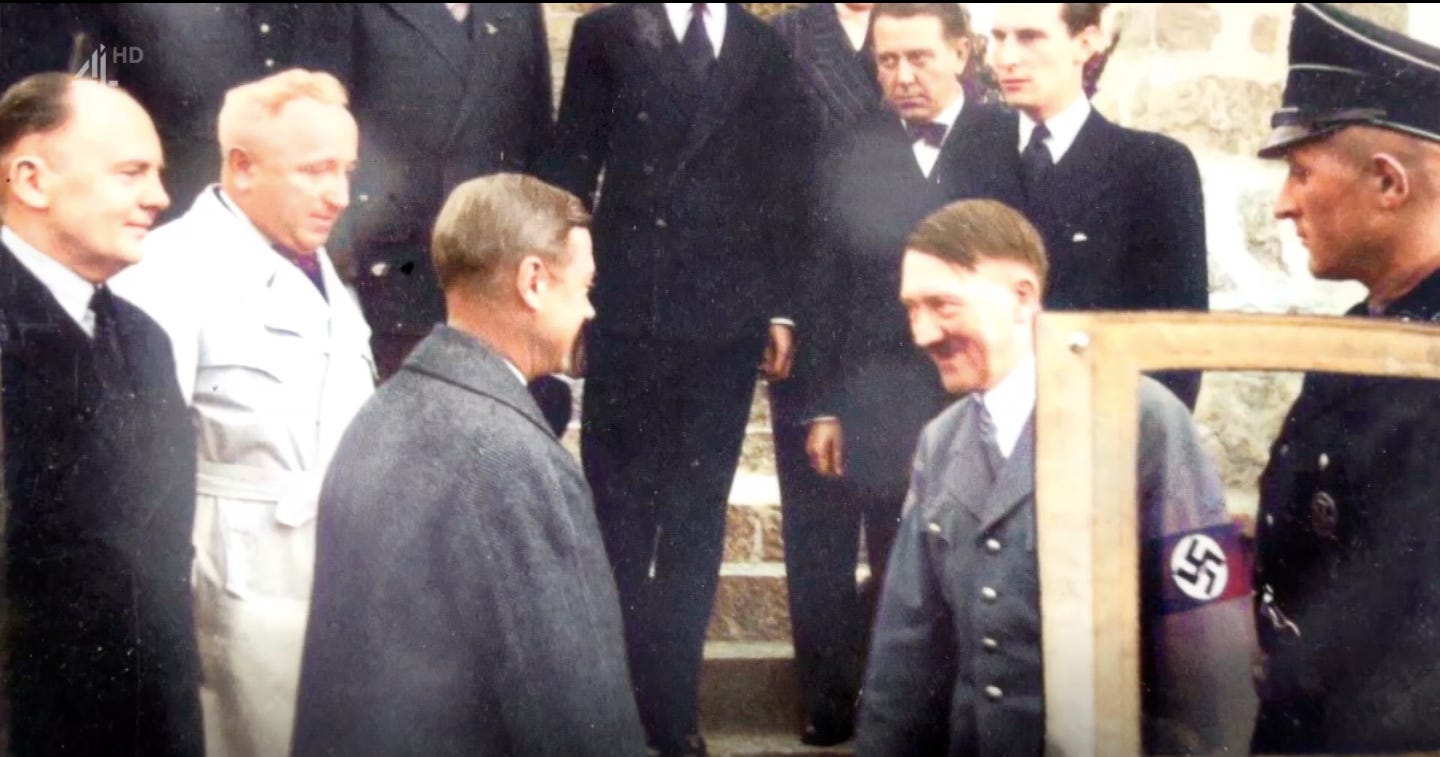
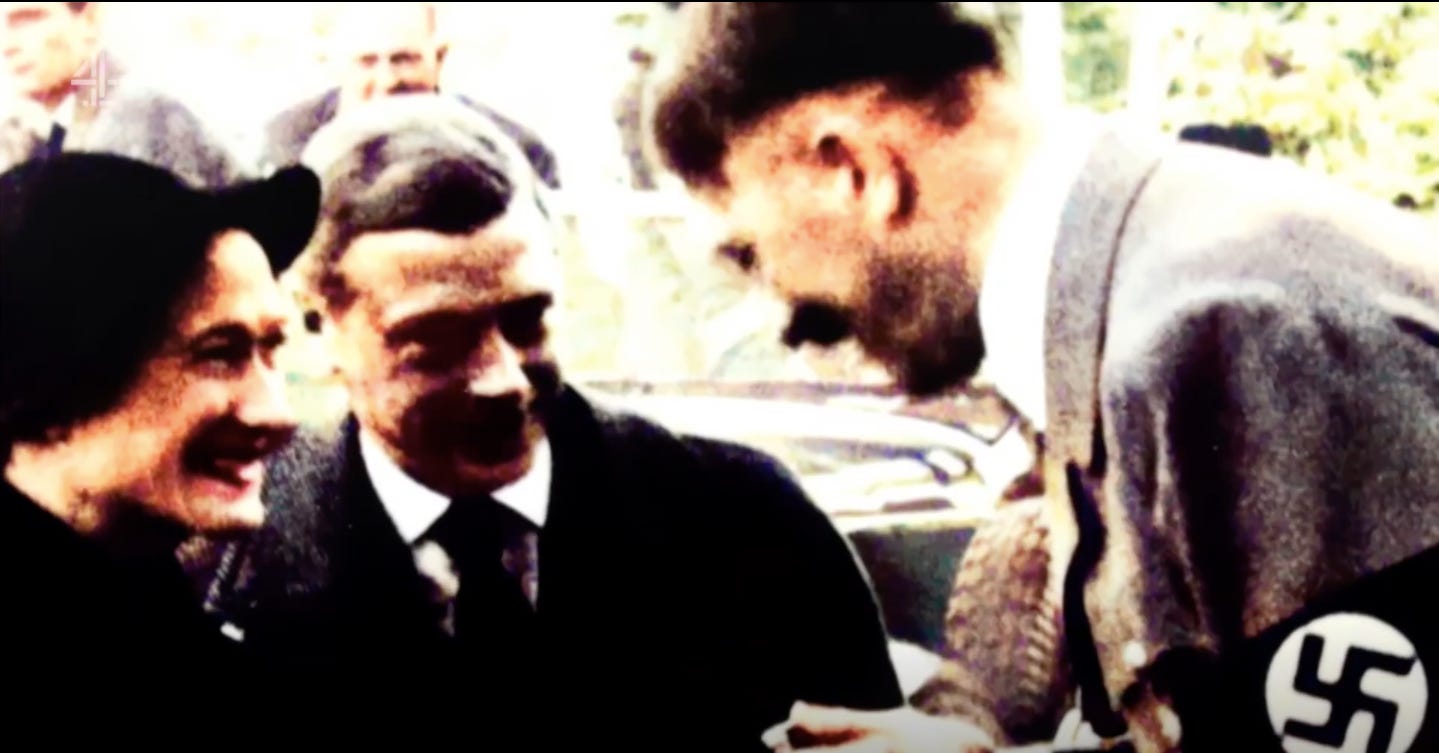
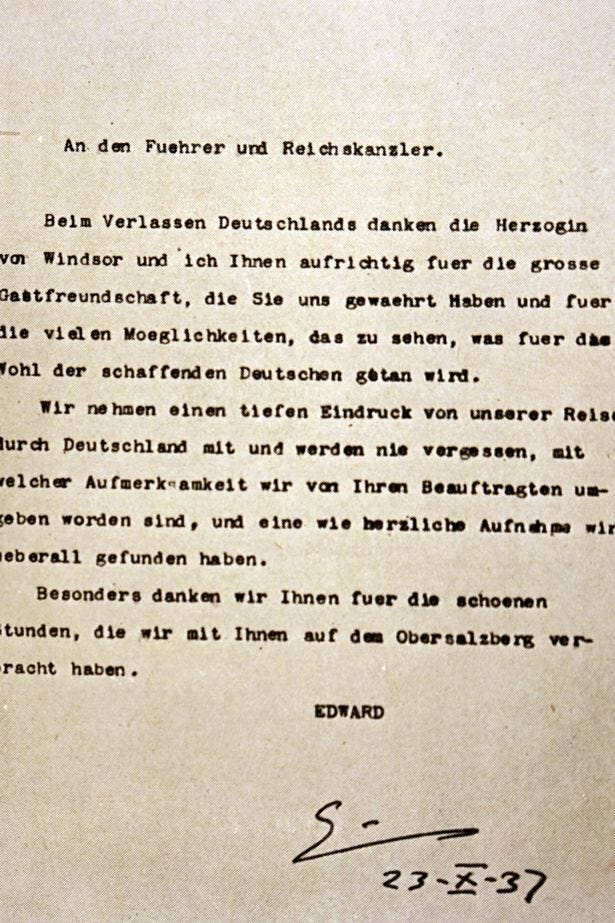


I can't believe he never got his comeuppance!